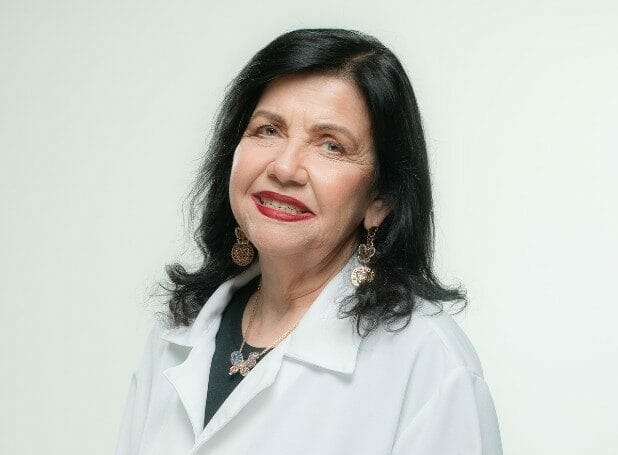Secrets to Staying Young: Science-Backed Tips for Defying Age

Aging is a natural process that all living organisms undergo, but we all wish to stay young and healthy for as long as possible. Fortunately, science continue to uncovered many secrets to staying young and defying age. What if we explore together the feeling good factors that makes you feel good enough for decades to come? In this article we’ll take a closer look at the secrets to staying young and reveal science-backed tips for defying age, so you can look and feel your best for years to come.

Table of Contents
Staying young at heart- a choice to defying age
Do you ever look in the mirror and wish you could turn back time? You’re not alone. The beauty industry is a multi-billion dollar industry, with millions of people spending their hard-earned money on anti-aging products and treatments every year. In fact, according to a report by Grand View Research, the global anti-aging market is expected to reach a staggering $331.41 billion by 2027.
But what if we told you that the secret to staying young isn’t found in a jar or bottle? Science-backed research suggests that there are specific lifestyle habits and behaviours that can help defy age and promote healthy aging. The quest for the fountain of youth has been a dream for many generations. People have always sought ways to stay young and vibrant. However, with advances in science and medicine, we now have more knowledge than ever about how to maintain our health and wellness as we age.
Before we dive into the secrets of staying young, let’s first understand how aging works. Aging is a natural process that involves a gradual decline in bodily functions over time. The aging process affects everyone differently and is influenced by genetics, lifestyle factors, and environmental factors.

The role of genetics and the science backed tips to defying age
Ageing is a complex process that involves the gradual decline of cellular and physiological functions, leading to a higher risk of chronic diseases and death. While environmental factors such as diet and lifestyle play an essential role in aging, genetics also play a crucial role in determining how we age.
Several genetic factors can influence ageing, including telomere length, DNA damage, mitochondrial function, and cellular senescence. Telomeres are the protective caps at the end of chromosomes that shorten with each cell division, eventually leading to cell death or senescence. Studies have shown that individuals with longer telomeres tend to have better health outcomes and a longer lifespan.
DNA damage, caused by environmental factors such as UV radiation and oxidative stress, can also accumulate over time, leading to cell damage and senescence. Genetic variations that affect DNA repair mechanisms can impact an individual’s ability to repair such damage, leading to accelerated aging.
Mitochondria, the powerhouses of cells, also play a crucial role in aging. Mitochondrial dysfunction, caused by genetic mutations or environmental factors such as toxins or a poor diet, can lead to oxidative stress, inflammation, and cellular damage, accelerating the aging process.
Cellular senescence, a process by which cells stop dividing and enter a state of dormancy, is another factor that influences aging. Genetic variations that affect senescence pathways can impact an individual’s ability to clear senescent cells, leading to chronic inflammation and accelerated aging.
Genetics play a crucial role in aging, influencing telomere length, DNA damage, mitochondrial function, and cellular senescence. Understanding the genetic factors that impact aging can help researchers develop strategies to prevent or delay age-related diseases and promote healthy aging. Some people are genetically predisposed to age faster than others. However, just because you have a genetic predisposition to age faster, it doesn’t mean that you can’t take steps to slow down the aging process.

Staying young at heart – best way of defying age
While genetics may influence how we age, lifestyle factors play a crucial role in determining our overall health and well-being. By adopting healthy habits, we can reduce the risk of chronic diseases and promote healthy aging.
One of the most critical lifestyle factors is diet. A balanced and nutritious diet, rich in fruits, vegetables, whole grains, and lean protein sources, can help reduce inflammation, promote cellular repair, and improve overall health. On the other hand, a diet high in processed foods, refined sugars, and saturated fats can increase the risk of chronic diseases, such as heart disease, diabetes, and cancer.
Exercise is another essential lifestyle factor that can promote healthy aging. Regular physical activity can help maintain healthy body weight, improve cardiovascular health, strengthen bones and muscles, and reduce the risk of chronic diseases. Exercise can also promote cognitive function, reducing the risk of dementia and other age-related cognitive decline.
Getting enough sleep is also critical for healthy aging. Lack of sleep can increase the risk of chronic diseases, impair cognitive function, and accelerate the aging process. Adults should aim for at least seven hours of sleep each night to promote overall health and well-being.
Reducing stress levels through activities such as meditation, yoga, or mindfulness can also help promote healthy aging. Chronic stress can contribute to the development of chronic diseases, impair immune function, and accelerate the aging process.
Finally, avoiding harmful habits such as smoking and excessive alcohol consumption can also promote healthy aging. Smoking can increase the risk of chronic diseases and accelerate the aging process, while excessive alcohol consumption can damage organs, impair cognitive function, and increase the risk of chronic diseases.
Lifestyle factors play a crucial role in healthy aging. By adopting a balanced and nutritious diet, engaging in regular physical activity, getting enough sleep, reducing stress, and avoiding harmful habits, we can reduce the risk of chronic diseases, promote overall health, and slow down the aging process.
Regular exercise is one of the best things you can do for your health. Exercise helps maintain muscle mass, which can decline with age. It also helps improve bone density, cardiovascular health, and cognitive function.
A healthy diet is essential for maintaining good health and slowing down the aging process. A diet rich in fruits, vegetables, whole grains, and lean proteins can help keep you healthy and young.
Sleep is essential for good health. Lack of sleep can lead to a variety of health problems, including premature aging. Aim for at least 7-8 hours of sleep per night.
Stress can have a significant impact on the ageing process. Chronic stress can lead to inflammation and oxidative stress, both of which contribute to aging. Find ways to manage stress, such as yoga, meditation, or deep breathing exercises.

The secrets to staying young: factor Environmental aspects that affect ageing
Exposure to toxins and pollutants, smoking, and excessive sun exposure can all contribute to premature aging and increase the risk of age-related diseases.
Air pollution is one of the environmental factors that can affect aging. Exposure to pollutants in the air, such as particulate matter and ozone, can cause inflammation, oxidative stress, and DNA damage. These factors can contribute to the development of age-related diseases, such as cardiovascular disease and respiratory problems.
Smoking is another environmental factor that can accelerate the aging process. Smoking not only causes damage to the lungs and respiratory system but also affects the skin, causing premature wrinkles and sagging. Smoking also increases the risk of age-related diseases, such as cancer and heart disease.
Excessive sun exposure is another environmental factor that can accelerate aging. UV radiation can cause damage to the skin, such as sunburn, age spots, and wrinkles. Prolonged exposure to the sun can also increase the risk of skin cancer. It is essential to wear protective clothing and apply sunscreen when spending time outdoors to protect your skin from the damaging effects of the sun.
In addition to these factors, exposure to toxins and chemicals in the environment can also contribute to aging. Chemicals found in pesticides, plastics, and household cleaners can disrupt hormonal balance and cause oxidative stress, which can lead to cellular damage and aging.
Smoking is one of the worst things you can do for your health. It accelerates the aging process and increases your risk of a variety of health problems. Quitting smoking is one of the best things you can do for your health.
It’s difficult to give an exact number of chemicals in an average household, as it can vary greatly depending on factors such as the size of the home, the number of occupants, and their daily habits and routines. However, studies have shown that the average household contains hundreds of different chemicals, many of which can be found in everyday household items such as cleaning products, personal care products, and even furniture and electronics.
According to a study conducted by the Environmental Working Group, the average American home contains around 62 toxic chemicals, including carcinogens, pesticides, and chemicals that can disrupt hormonal balance. These chemicals can be found in products such as cleaning sprays, air fresheners, and personal care products like shampoo and lotion.
Another study conducted by the Silent Spring Institute found that many common household products contain chemicals that can interfere with the body’s hormone system, including flame retardants found in furniture and electronics, and phthalates found in plastic products.
While it’s impossible to completely eliminate all chemicals from our homes, there are steps we can take to reduce exposure, such as using natural cleaning products, choosing products with fewer synthetic chemicals, and improving indoor air quality through proper ventilation.
Environmental factors play a significant role in the aging process. To promote healthy aging, it is important to limit exposure to toxins and pollutants, avoid smoking, and protect your skin from excessive sun exposure. By taking steps to reduce exposure to environmental factors, you can help slow down the aging process and promote overall health and wellbeing.

Defying age and the shift in insurance policy offers
Many supplements claim to have anti-aging properties. While some of these supplements may have some benefits, there is no magic pill that can reverse the aging process, but there is a huge wave of self-awareness which, in turn created a shift in making better lifestyle choices. As a result, more and more insurance companies are adjusting to a changing demographic trend where people are living longer than ever before.
Some insurance companies are now offering policies that expect people to live up to 120 years old, instead of the previous expectation of 100 years old. This is because advancements in medical technology, improved healthcare, and healthier lifestyle habits have increased life expectancy around the world.
Insurance companies have traditionally based their policies and premiums on actuarial tables, which calculate risk and the likelihood of an individual dying at a certain age. With people living longer, insurance companies have had to reassess their policies and premiums to ensure they remain profitable and sustainable in the long run.
Some insurance companies are offering policies with longer terms, allowing customers to continue coverage well into their old age. Others are incorporating wellness and health programs into their policies, encouraging customers to lead healthier lifestyles and reduce the risk of illness or disease. These programs can include fitness and nutrition plans, access to healthcare professionals, and discounts on gym memberships and healthy food options.
While longer life expectancy can be seen as a positive development, it also poses challenges for insurance companies in terms of managing risk and ensuring profitability. However, with innovative policies and programs that encourage healthy living, insurance companies are adapting to the changing demographic landscape and preparing for a future where people are expected to live longer and healthier lives.
Aging is a natural process that we all undergo. However, by adopting a healthy lifestyle and avoiding environmental toxins, we can significantly slow down the aging process. Remember to exercise regularly, eat a healthy diet, get enough sleep, and manage stress. Making better lifestyle choices will keep you young at heart and healthy for many decades to come.

FAQs
- Can supplements reverse the aging process? While some supplements may have some benefits, there is no magic pill that can reverse the aging process.
- Can genetics affect the aging process? Yes, genetics can play a significant role in the aging process. Some people are genetically predisposed to age faster than others. However, a healthy lifestyle can still help slow down the aging process, even if you have a genetic predisposition to age faster.
- How does stress affect the aging process? Chronic stress can lead to inflammation and oxidative stress, both of which contribute to aging. Finding ways to manage stress, such as through meditation or exercise, can help slow down the aging process.
- What foods should I eat to stay young? A healthy diet that includes fruits, vegetables, whole grains, and lean proteins can help keep you healthy and young. Some foods, such as berries, fatty fish, and nuts, have been shown to have anti-aging properties.
- Can I reverse the signs of aging on my skin? While you can’t completely reverse the signs of aging on your skin, there are steps you can take to minimize the appearance of fine lines and wrinkles. Using a daily moisturizer with SPF, avoiding excessive sun exposure, and using products with retinoids can all help reduce the signs of aging on your skin.





